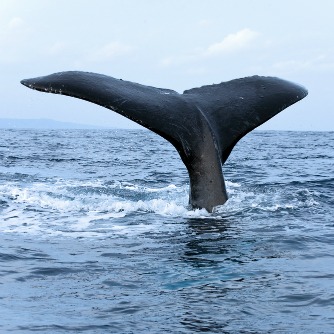The bowhead whale (Balaena mysticetus) is estimated to live over 200 years and is possibly the longest-living mammal. Joao Pedro de Magalhaes, from the University of Liverpool (United Kingdom), and colleagues sequenced and analyzed the bowhead whale genome and two transcriptomes from different populations, with data analysis suggesting that alterations in bowhead genes related to cell division, DNA repair, cancer, and aging may have helped increase its longevity and cancer resistance. The team also identified “potentially relevant changes in genes related to additional processes, including thermoregulation, sensory perception, dietary adaptations, and immune response.”
.




